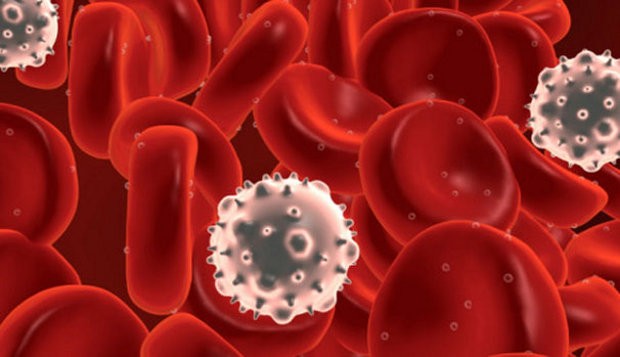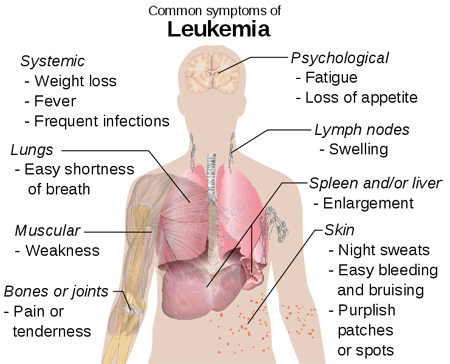Experimental treatment sends deadly leukemia into remission

|
An experimental new treatment approach for a rare, deadly leukemia can send the disease into remission even in patients for whom the standard therapy has failed, buying them more time to have the stem cell transplant that could save their lives, a small pilot study has found.
“It was unbelievable, really, seeing a patient who had already failed Campath [the drug typically used to treat the disease] literally going back into remission,” said Thomas P. Loughran Jr., M.D., director of the University of Virginia Cancer Center and one of the leaders of the study. “We were able to get every single patient back into remission.”
The new approach to battling T-cell prolymphocytic leukemia combines immunotherapy - boosting the body’s immune system - with epigenetics, the manipulation of gene activity. It’s a cutting-edge combination that holds great promise not just for treating T-cell prolymphocytic leukemia but, possibly, many other cancers as well. “There’s been a revolution in the last few years seeing success with immunotherapy, and people speculated that perhaps if you combined epigenetic and immunotherapy, that might be even more spectacular,” Loughran said. “This is proof of principle that this might be true.”
The pilot study, led by Loughran at UVA and Elliot Epner, M.D., at Pennsylvania State University College of Medicine, looked at eight patients with T-cell prolymphocytic leukemia, an aggressive cancer that is extremely difficult to treat. It’s also extremely rare, appearing most commonly in older men.
The experimental approach did not cure the patients, but it did send them all into remission. And it worked repeatedly - patients could be re-treated and receive the same benefit, providing vital time as they looked for a suitable bone marrow/stem cell donor. (To receive a transplant for this disease, patients must first be in remission.)
 There are limitations to the experimental approach. Mounting toxicity limits how many times the treatment can be administered, and the suppression of the immune system can lead to infections and other complications. But the treatment made a significant difference for all the study participants. One patient was expected to live only four months but survived 34. Three others were still alive at the time the researchers were compiling the trial results.
There are limitations to the experimental approach. Mounting toxicity limits how many times the treatment can be administered, and the suppression of the immune system can lead to infections and other complications. But the treatment made a significant difference for all the study participants. One patient was expected to live only four months but survived 34. Three others were still alive at the time the researchers were compiling the trial results.
‘Unbelievable’ success for small pilot study
Treatment buys critical time for patients seeking potentially life-saving transplant
Cutting-edge combo pairs immune therapy, manipulation of gene activity
Drugs already approved by the Food and Drug Administration
Study ‘proof of principle’ for treating many other cancers as well
The drugs used in the treatment are already commercially available, meaning doctors could, in theory, administer the treatment without further testing. Loughran, however, believes there needs to be additional study, hopefully in a larger trial, but the rarity of the disease makes recruiting subjects difficult. As such, he encourages patients with the disease to consider seeking treatment at UVA. “We’d be very glad to see them here, if they want to come see us,” he said.
The study results have been published online by the journal Science Translational Medicine. The article was authored by Zainul S. Hasanali, Bikramajit Singh Saroya, August Stuart, Sara Shimko, Juanita Evans, Mithun Vinod Shah, Kamal Sharma, Violetta V. Leshchenko, Samir Parekh, Loughran and Epner.
###
Josh Barney
.(JavaScript must be enabled to view this email address)
434-906-8864
Print Version
Tell-a-Friend comments powered by Disqus





